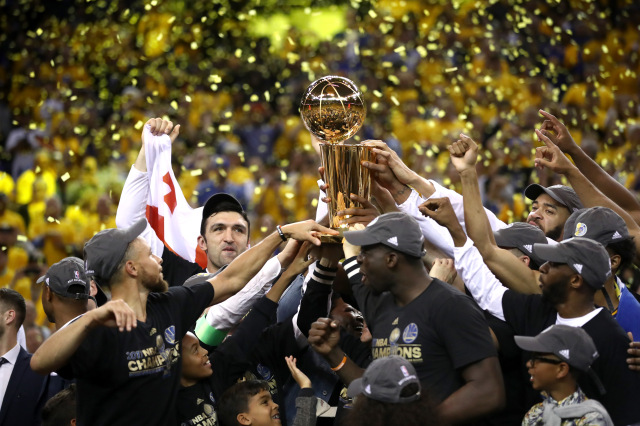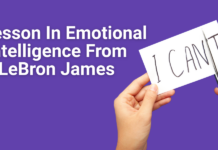
How did the Golden State Warriors build a championship culture?
They ate a lot of cake.
In what has become a Warriors tradition, players receive custom-designed cakes on their birthdays from Alison Okabayashi, a trained pastry chef in the Bay Area. (What else do you get for a multi-millionaire on his birthday?) Over the past year, Okabayashi has dreamed up MVP-caliber confections for the team. There was the one with the Michigan State mascot in Draymond Green’s uniform. Or the lifelike reconstruction of Anderson Vareajo’s curly hair. And who could forget the birthday cake for Kevin Durant, the newest Warrior, who celebrated his birthday with a cake replica of his jersey adorned with Olympic gold medals and crab legs?
Each cake is carefully designed to satisfy each player’s special interests and tastes and is kept under wraps until the team gathers together to celebrate – no one but Okabayashi knows which cake a player will receive.
The cakes may not seem like much, but they are a slice of team culture that is regarded as one of the league’s best. Stephen Curry put it plainly: “Treat people well. Make them feel special. That’s the reason the organization is successful.”
Good leaders get this. Based on studies of emotional intelligence, some of the top-performing leaders are twice as likely to elicit laughter from their subordinates as their less successful counterparts. When subordinates see that the leader is happy, they’ll mirror these emotions in their own interactions with others, who in turn do the same. The positivity is multiplied again and again.
But here’s the really interesting part: Not only do emotionally savvy leaders create more happiness, but they also increase productivity. They get more out of the people around them. The easy explanation is that people tend to work better when they feel safer. When there’s laughter around the workplace, people lower their guard and raise their game. The lightness of the environment makes people less edgy and self-conscious, which sets the conditions for more daring and creative work. When the Warriors’ director of basketball administration came up with the idea for the cakes, she put the icing on a happy vibe that was already baked into the team’s culture.
That’s why laughter is so potent. It may not seem like much, but laughter is the ringtone of inclusion. It’s a sign of people connecting on a deep level. Laughter is the sort of thing that continues to compound even as it’s spent. By finding ways to laugh with their team, leaders build social capital and trust. They create an atmosphere in which people want to deliver the best version of themselves, every day. Which, apart from having one of the most lethal offensives in the NBA, is one reason why the Warriors are once again leading the league in wins.
When that connection is lost or when people feel like they don’t belong, the distance puts a freeze on performance—literally. Researchers have identified a strong link between social exclusion and the perception of coldness. When we meet people who immediately make us feel wanted and connected, we think of them as “warm.” But our social thermometers run in both directions, hot and cold. Even trivial instances of ostracism—like sensing that we’ve been snubbed by someone passing us in the hall or in an elevator—can change our perceptions of temperature and send a chill through our interactions.
Ever had a social encounter that wasn’t particularly friendly? You’d probably describe the unkind people there as “cold,” but it’s actually you who felt that way. In two studies recalling exclusion, individuals who felt ignored perceived the room as colder than it really was. Not only that, but, in some cases, individuals who felt excluded actually experienced a momentary dip in body temperature and asked for a hot beverage! Sensing that they weren’t a part of something, these people felt iced out.
When you put this all together, the messages leaders broadcast to their teams carry some pretty high stakes for the way others perceive their performance, their sense of purpose, and even their own body temperatures. If there’s anything to be learned from the Warriors’ locker room or the research on laughter, it’s that we can’t really disentangle how we feel from how we perform. That primal sense of belonging is what supercharges teams or saps their energy. Personalized birthday cakes are nice, but even smaller gestures can make a big difference in team culture. If leaders don’t take a shot at creating attachment, they might just be leaving people out in the cold.
Joe Hirsch is the managing director of Semaca Partners and the bestselling author of The Feedback Fix: Dump the Past, Embrace the Future, and Lead the Way to Change (Rowman & Littlefield, 2017). Follow him @joemhirsch.





